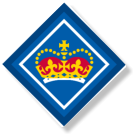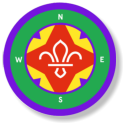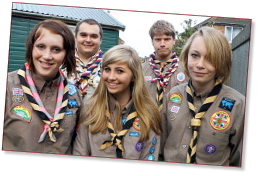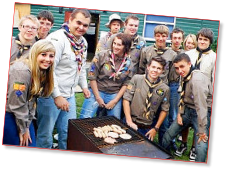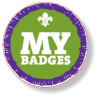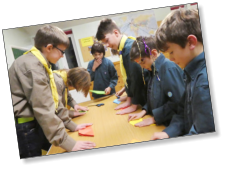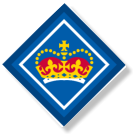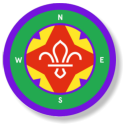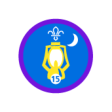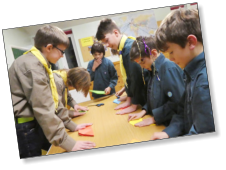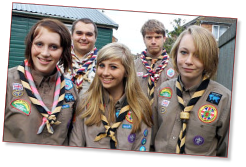


Who are Explorers?
Explorers are a go-getting group of young people aged 14 to 18. Together, they make up the fourth section of the Scouts. They meet in groups called Units to try new things, make new friends, and discover the world on their terms. Being an Explorer is all about making the most of what they have, wherever and whoever they who together with their new friends, they master the skills that will make them feel stronger and happier and try things they’d never get the chance to do at home or school. Whether hiking to faraway lands or building a robot, they have the freedom to choose what they’d like to do and work together with adults to make it happen. They also seek answers to the big question and the more minor questions that don’t seem to matter but really should.What’s it all about?
The age range is flexible: you can join from age 13½ but cannot move to Network until 18. However, you must have left the Explorer Scout section before the date of your 18th birthday. Explorer Units are organised and run on a District- wide basis. Still, individuals are generally associated with one Unit, although they are free to participate in other Units' activities. Alternatively, there are opportunities for you, as an Explorer Scout, to become a Young Leader and help the Leaders at the Beaver Colony, Cub Pack or Scout Troop in your Group. These allow you to gain valuable leadership and volunteering skills and the experience of working with younger members of the Movement. As young people have busy lives, and in particular, school work and exams take up a significant part of their time, Explorer Scouting is designed to fit around these and other essential aspects of your life. With the support, direction and guidance of Unit leaders, Explorer Scouts and Young Leaders are encouraged to lead themselves, design their programme and work towards the top awards that Scouting offers. With exciting prospects like being a part of camps and expeditions both home and abroad; adventurous activities such as mountaineering, parascending and offshore sailing; Explorers offers fun and adventure for all. If you are moving to Explorers from Scouts or becoming a Young Leader, you can transfer these Scout badges to your Explorer Scout uniform: • Joining In Badge (highest number) • Scout Moving-On Award • Chief Scout’s Gold Award • Any Staged Activity Badges that you have (highest stage gained)Local Units
Moors & Coastal District currently has the following Units: • Mariner Explorer Unit - based at Watchet, and serving the west side of the District • Jurassic Explorer Unit - based in the Bridgwater / Highbridge area, and serving the central area of the District. • Excalibur Explorer Unit - based in the Langport area, and serving the east side of the District • Griffin Explorer Unit - currently not operating- serving the northern end of the District, in the Axe Valley area, it operates from the Cheddar and Wedmore scout centres. Contact the unit - explorers@wedmorescoutgroup.org.uk • A Young Leaders section - in which individual Explorer Scouts help the leadership team in one of the younger sections in a local Group. Unit members don't meet every week, partly due to activities, holidays, exams, and the other commitments that crop up in a teenager's life. Explorers tend to get out and about at weekends more often than other sections. The Explorer Programme and Award Scheme are based around three main themes: outdoor and adventure, world and skills, and is compatible with the Duke of Edinburgh's Award Scheme, enabling it to be combined with this. Also, there is an exceptional Young Leaders' training scheme available to Explorer ScoutsYoung Leaders’ Scheme
Being a Young Leader is a position of responsibility that's challenging but fun that makes a real difference. Although the Scheme is usually taken on by Explorer Scouts looking for a new challenge, young people from outside Scouting can also participate if they work towards their Duke of Edinburgh's Awards or Queen's Guide Award. They can do this by volunteering as non-members for a set period, i.e. for three to six months if completing their Duke of Edinburgh's Award (Bronze). As a Young Leaders, you are a valuable asset to your local or old Group. Not only can you offer great assistance as part of the leadership team, but you are likely to be the leaders of tomorrow, shaping the Movement and lives of other young people. As a Young Leaders, you form an essential part of any younger section's leadership team, bringing fresh ideas, techniques, and plenty of enthusiasm. Becoming a Young Leader in Wedmore Scout Group, or elsewhere, provides terrific opportunities to enhance leadership skills, make you more employable, and gain valuable experience that will help you decide to continue volunteering as an adult. As a Young Leader, you wear the Explorer Scout uniform, but with the Group's neckerchief. As a Young Leader and take part in a unique training scheme; however, you are still free to join in with other Explorer Scout events with local Units if you wish to do so; and tackle the same Challenge Awards, Staged and Activity Badges.Getting Invested
Your Investiture is similar to Beavers, Cubs and Scouts, as you will make your Promise in front of your Unit. You will then receive a District or Unit scarf to show that you are now an Explorer Scout.Explorer Promise & Law
The Explorer Promise and Laws are the same as those used in the Scout Troop and all adults in Scouting. As far as possible, it would be best if you tried to learn your promise off-by-heart, as you must try your best to live by it. Download a Scout Promise sheetYour uniform
It would be best to buy your uniform a few weeks after joining the Unit once you are settled. The main parts of the Explorer Scout uniform are: • District or Unit Scarf – You will be given your scarf when you are invested. • Woggle – This is usually a leather ring with the scout logo on that holds the scarf in place. • Shirt / Blouse – A long-sleeved, beige shirt or blouse, with an embroidered scout logo, onto which to sew your badges. • Trousers / Skirt – These are navy blue with a scout logo on them. • Belt – This is leather with a metal buckle bearing the scout logo; alternatively an Explorer Belt and buckle, or Young Leader Buckle, if either of these has been awarded.Challenges & badges
There is a range of ambitious badges and awards through which Explorers and Young Leaders can demonstrate their proficiencies and expand their interests. You can download an App for your mobile phone or note pad that gives you details of all the awards and badges you can gain, as wells the promise and law - go to download now The Explorer programme includes 15 challenge areas, split into the three main programme themes, mirroring the challenge awards in the younger sections. These challenge areas give you choices and variety to support you in planning your Unit programme. The three main programme themes are: • Outdoor and Adventure - covering Campcraft, Survival Skills, Peer-led Nights Away, Adventurous Activities, and Navigation • Skills - which encompass Creative, Communication, Cooking, Health & Fitness, as well as Team-building and Leadership topics • World - covering the areas of International Scouting, Environment, Culture, Visits & Visitors, and Citizenship There are three Challenge Awards for you to tackle, each of which includes elements from the main programme themes; these are: • Chief Scout's Platinum Award • Chief Scout's Diamond Award • King’s Scout Award as well as these special challenges: • The Explorer Belt • The Duke of Edinburgh’s Award Also, there is a range of Activity Badges to test your skills and help you with new interests, which can also help complete some of your Chief Scout's Awards. and Queens Scout Award. Additionally, special staged badges cover a range of topics and skills that you can tackle through your time in Scouting.King’s Scout Award
The King’s Scout Award (KSA) is Scouting’s top youth award and the culmination of everything that a young person does in Scouting. It requires commitment from young people to develop and challenge themselves in many new ways and is an achievement that participants will remember for the rest of their lives. The KSA is aligned to the Gold DofE programme, and many educational establishments and potential employers recognise it. It is available to Explorer Scouts aged 16+.Explorer Belt
The Explorer Belt is a challenge of a lifetime. It is a chance to take part in a ten-day expedition that brings you a real understanding of a different country, culture, and way of life. You will develop this understanding by travelling through your chosen country, working as part of a small team to complete a series of projects and most importantly, by meeting local people. It is an experience and an achievement that you will remember for the rest of your life. If aged 16–18 years old, you may only participate in an organised expedition supported by an in- country leadership team rather than being self-led.Duke of Edinburgh’s Award
The Duke of Edinburgh's Award (DofE) is a programme for young people aged 14 to 25. There are three levels; Bronze, Silver and Gold, which are available to 14+, 15+ and 16+. These awards link with the Chief Scout's Platinum, Chief Scout's Diamond and Queen's Scout Awards, where they fulfil some of the Scouting awards' requirements. Several licensed providers deliver the DofE is through, so if you participate in the scheme at school or with some other provider, there are direct links in completing your DofE that satisfy some of your Explorer Scouting training.Young Leader Training Scheme
The Explorer Scouts Young Leader (ESYLs’) Scheme is the training programme for Young Leaders. It contains 11 modules and four missions for you to work through whilst volunteering in their chosen section. Modules give you the skills and knowledge to succeed in your role, while missions allow you to put everything into practice with support. As well as developing valuable life skills, the Scheme is an opportunity for you to make a positive impact in their communities and fulfil the service elements of many of the top awards in Scouting. Your achievements are recognised along the way. After completing Training Module A, you will receive the Explorer Scouts Young Leader badge and woggle and awarded mission strips when completing each mission. On completion of the Scheme, then you will be awarded an Explorer Scouts Young Leader belt buckle.Activity Badges
These cover a wide range of skills, experiences and interests, all of which represent the pinnacle of achievement in a particular field. Whether your interests lie in Hill Walking or Performing Arts, Aviation or Public Relations. They can be achieved by you at home, at school, or through a hobby you have and help you develop existing strengths and undertake new ventures. Click here to go to the main Scout website, where you will find a list of all of the Explorer Activity Badges and details of what to do to achieve them.Staged Badges
These badges have several stages, which get more difficult as they go on - they are to help you develop your special interests and help complete your Challenge and Chief Scout's Awards. These can be undertaken in any order and cover a range of topics and skills; you can begin at whatever stage you find to be the hardest. However, the stages do get more difficult each time Click here to go to the main Scout website, where you will find a list of all of the Staged Activity Badges and details of what to do to achieve them.Joining-in Awards
These numbered badges show how many years you have been in the Scout Movement, starting from the time you first joined. You can wear all of the badges you get while in the Cubs, then keep the highest numbered badge when you move on to Scouts.Moving-on Award
The Moving-on Award helps determine your ongoing options for staying in Scouting in your area, including finding out about the Scout Network and volunteering opportunities. Scout Network gives opportunities to 18-25-year- olds interested in Scouting, their personal development and having fun. Its members take part in various activities, which they undertake and organise themselves under the leadership of a District Scout Network Commissioner and sometimes with the support of a Programme Coordinator. If you are interested in the Scout Network, you need to attend both Explorers and Network for a short time (at least three weeks) and participate in the Network programme.











What do you
want to look at?
•
Join in
•
Beavers
•
Cubs
•
Scouts
•
Explorers
•
Adults
•
Group
•
Links
•
Diary
What do you
want to check?
What’s it all
about?
Local Units
Young Leaders
Investiture
Promise & law
Your uniform
Badges to get
King’s Award
Explorer Belt
D of E Award
Unit meetings
Wednesday night
7.30 to 9.30 pm
Cheddar/Wedmore
